For Loise van Rhyn, returning to South
Africa meant changing negatives to positives. The object of her goal? Our
schools, one principal at a time.
I meet social entrepreneur Louise van Rhyn
at Cape Town International Airport. She is flustered but excited. Her eyes are
shining.
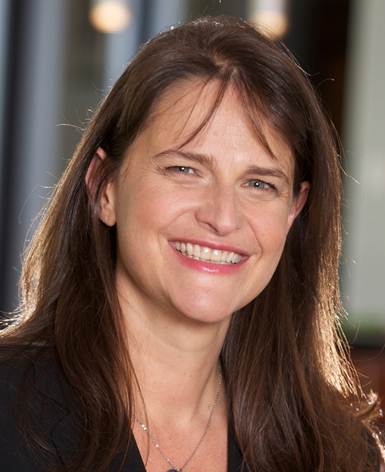
Louise
van Rhyn
‘If we deal with the education crisis in
South Africa, we will have no businesses and we will, as a country, soon be
functionally illiterate,’ says Louise, who has a UK doctorate in complex social
change, and whose NGO, Symphonia, has just received the Blue Dart Global
Corporate Social Responsibility Award for Social Entrepreneurship in Mumbal,
India. ‘Everyone wants to look at systems and policies, but large scale change
doesn’t happen through systems and policies. but through small scale projects
where know ledge is shared and used to unlock possibility.’
Louise is founder of Symphonia, an
organisation dedicated to strengthening the fabric of South African society,
‘One of the ways we do this is through our work in education —by bringing
positive change to our struggling schools,’ she says.
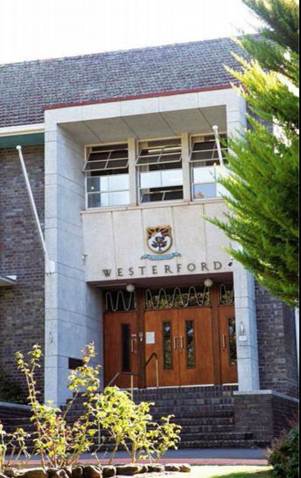
‘One
of the ways we do this is through our work in education —by bringing positive
change to our struggling schools,’ she says.
Built on the ethos of Benjamin and Rosamund
Zander s book The Art of Possibility, Symphonia brings school principals and
business leaders together in a co-learning and co-action partnership. Together
they deal with one of the biggest challenges in our schools: parental and
community engagement. Through these conversations, the schools concerned become
centres of their communities.
‘Principals are not just responsible for
academic outcomes,’ says Veronica Wantenaar, a learning process facilitator
in Cape Town. ‘They are responsible for leading change in their schools and
communities and they need to be adequately supported.’ Business leaders have a
lot of experience in the art and science of leading change,’ says Louise. What
Symphonia hopes to do is to bring this expertise into the education system
where it’s most needed — around the principal, who is the change agent.

Business
leaders have a lot of experience in the art and science of leading change
A school is the centre of a community
In an overburdened and under-re sourced
sector, teachers, particularly the principals and staff leaders, need to learn
from other principals and teachers. They need help from leaders in business.
They need parents to care and to give what they can. They need all of this so
that children can grow. This is where Symphonia’s Partner for Possibility
Leadership Development programme comes in. ‘It’s about walking together,’ says
Louise. ‘instead of apart.’
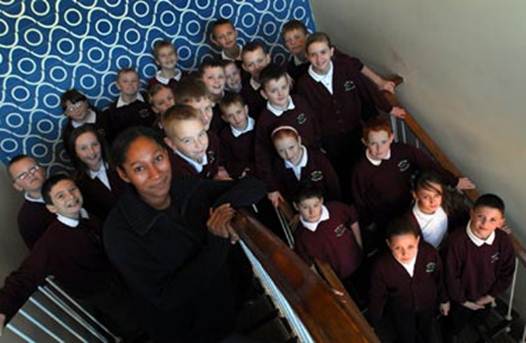
A
school is the centre of a community
Bringing together those who have a stake in
education means bringing together a diverse network of people who all have a
common concern — educating the future generation. And when there’s diversity,
there’s challenge. But where there’s challenge, there’s growth — on all sides.
The schools gain and so do the business leaders, not just BEE and corporate
social investment kudos.
‘Business people get the life- changing
chance to learn about real leadership.’ says Louise. But it’s not an easy
lesson. ‘You can’t go in wanting to fix a situation, thinking that you know how
to do it,’ she says. ‘That can be disrespectful. There’s a whole training
process for business partners, where we have to alter the way they think about
what it means to be helpful. Often, the most helpful thing we can do is to
just be available to listen.’
Louise’s ideas about change and leadership are on target with trends at Harvard Business School — and she was
recently invited to speak at global talk platform TEDxCape Town.
But she’s learnt from her own experience;
it took some time before she was trusted by the teachers at Kannemeyer Primary
School in Grassy Park, Cape Town, where she partnered up with principal Ridwan
Samodien to put her theory to the test. ‘I needed to continue to follow through
on my promises and be willing to show up authentically to be accepted’ she
says. ‘All my trappings of achievement, the things I’d been conditioned to
believe were important, were not. I even had to change the way I dressed. But
through it all, I learnt that who I am is enough.’
Louise, once a high-flying exec in London, carne upon the Zanders book while she was completing her doctorate
there. ‘They talked about how everybody talked about South Africa,’ she says.
‘It was like a living, breathing entity, a symphony of voices. Reading it made
me realise that I wanted to return to facilitate Symphonia, a space where all
the voices could be heard.’
‘I had to contribute to strengthening the
fabric of SA society,’ she says. ‘I have been very privileged; so it is lily
responsibility to give back.’
‘The whole notion of building relationships
and making a difference, of growing the personality in a way that is about
giving rather than taking, are lessons that are built into the sharing
process,’ says Symphonia’s Gauteng leadership facilitator, Raphael Sher.
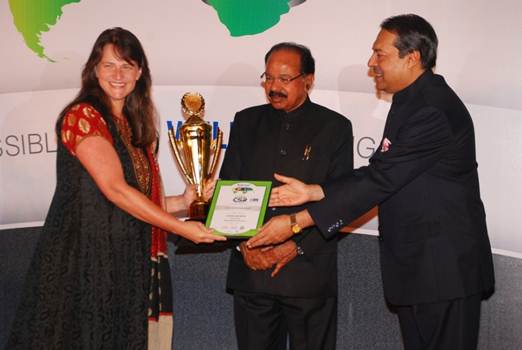
‘I
had to contribute to strengthening the fabric of SA society,’ she says. ‘I have
been very privileged; so it is lily responsibility to give back.’
For outsiders, it can be difficult to
understand what it actually means to be a principal. ‘They have pressure coming
at them from the Department of Education, from the pupils, from the teachers
and from the parents — often all at one time,’ says Symphonia’s Gauteng
coordinator Michel Joffe. ‘The idea is to help create a thinking environment,
where they feel supported.’
‘What I really learnt,’ says Mavis Khosa,
principal of Bovet Primary in Alexandra, Gauteng, ‘is that Nick, my business
partner from Hollard, is really passionate about education. That came as a
shock to me; I thought we were all on our own, and they were on their own. Now
we have this common passion.’ Now Mavis has moved from doing only daily damage
control, to having a plan in place to find and conscript old students in
helping the school, running a monthly sports day, and using Hollard’s technical
expertise to encourage parents to vote in the school’s upcoming governing body
elections.

‘The
idea is to help create a thinking environment, where they feel supported.’
‘Our children’s self-worth has grown
exponentially since we have been part of the programme,’ says Ridwan, principal
of Kannemeyer Primary School. ‘We now have systems in place ... so children
grow and learn as human beings and become better citizens.’
The response from the Department of
Education has been positive. And there are hopes that these new paradigms will
catch on throughout the country. “We currently have 47 principals on our
programme in seven leadership circles,’ says Louise. ‘We hope to have 120
principals (and schools) on the programme by the end of 2012, and then we hope
to add about 300 schools next year.’
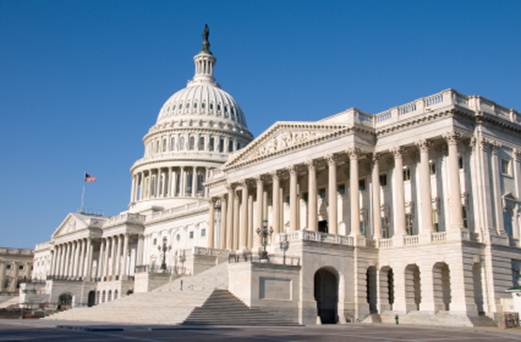
The
response from the Department of Education has been positive.
But most importantly, despite huge
obstacles, Louise says there is more hope in our schools than we realise. ‘A
measure of a school is whether the children have a sense of future,’ says
Louise. ‘The teachers should be energised. I always ask: do the teachers have
shining eyes?’